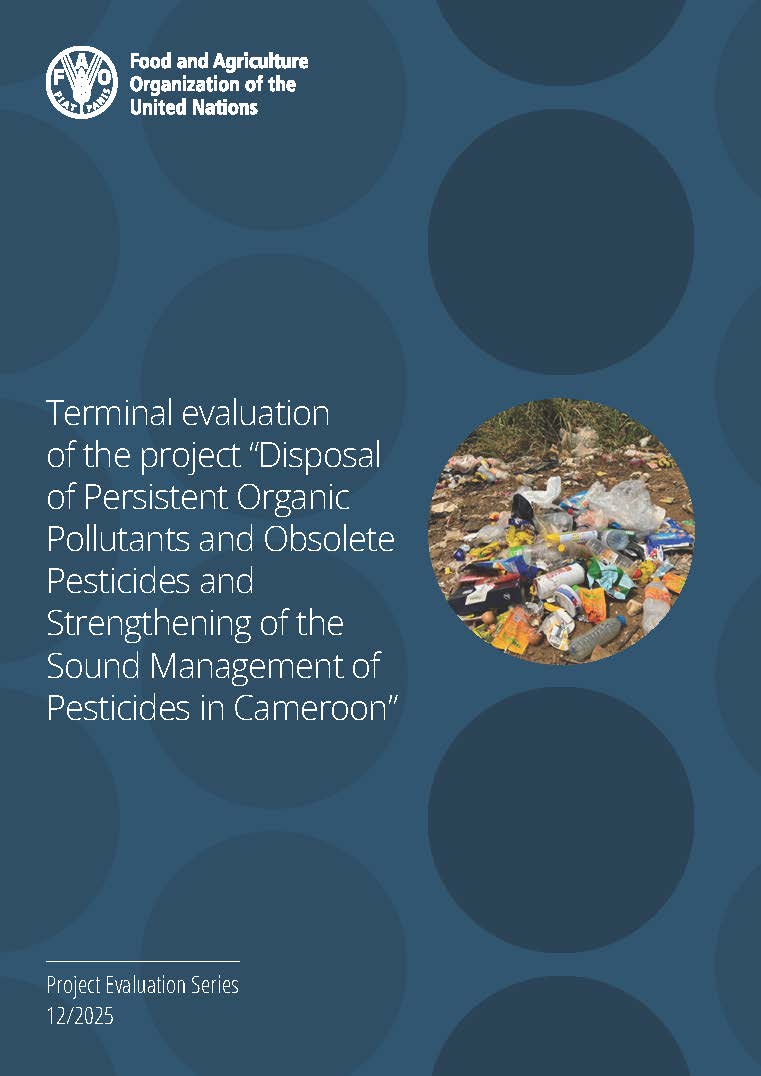Completed evaluations

Terminal evaluation of the project "Revitalising oasis agroecosystems through a sustainable, integrated and landscape approach in the Drâa Tafilalet Region"
30/06/2025
The evaluation had a dual objective: to ensure accountability and foster organizational learning. It was conducted through a document review, a field mission, semi-structured interviews, a case study, and focus groups with stakeholders and end beneficiaries.

Terminal evaluation of the project "Piloting Provincial-level Wetland Protected Areas System in Jiangxi Province"
19/06/2025
This is the terminal evaluation report of the project “Piloting Provincial-level Wetland Protected Area System in Jiangxi Province”. The Global Environment Facility (GEF) funded the project in China, and the Food and Agriculture Organization of the United Nations (FAO) implemented it.

Unpacking FAO’s urban-related portfolio – Brief on FAO’s work on urban agrifood systems
16/06/2025
This brief summarizes key takeaways from the scoping phase for a future evaluation of FAO’s Better Environment Programme Priority Area 4 (BE4). An analysis of the portfolio of FAO’s urban food systems projects from 2015 to the present, and consultations with FAO personnel involved in BE4. The brief outlines the origins and evolution of FAO’s work related to urban food systems, describes FAO’s portfolio of urban food systems projects and offers considerations for the future.

Evaluation of the project "Shared prosperity through cooperation in border regions of Kyrgyzstan and Uzbekistan"
09/06/2025
The final evaluation of the project "Shared prosperity through cooperation in border regions of Kyrgyzstan and Uzbekistan", funded by the Peacebuilding Fund, analysed project activities implemented from 2022 to 2024 in 12 project sites in the Jalalabad and Osh regions of Kyrgyzstan and the Andijan and Namangan regions of Uzbekistan.

Evaluation of FAO’s support to Life below Water (SDG 14)
09/05/2025
This evaluation assesses the relevance, contribution and leveraging of partnerships in FAO’s efforts to monitor and progress towards achieving SDG 14 targets (especially those linked to indicators under its custodianship) and broader SDG 14 objectives. Findings show the relevance and contributions of FAO’s work, as well as areas to improve.

Review of the FAO Philippines Country Programming Framework 2018–2024
09/05/2025
FAO conducted a Country Programme Review to assess its contributions in the Philippines from 2018 to 2024 and inform future strategic planning. The review covered various aspects of FAO's work, including Anticipatory Action (AA), nutrition, gender integration through collaboration with the United Nations Population Fund (UNFPA), and leveraging partnerships.

Terminal evaluation of the project "Disposal of existing persistant organic pollutants and other obsolete pesticides and implementaion of a sound pests and pesticides management in Cameroon"
08/05/2025
The evaluation found that the project is highly relevant and coherent, while its effectiveness and efficiency are moderately satisfactory, and its sustainability and impact are moderately unlikely. The evaluation recommends supporting the completion of the activities initiated and continuing to build the capacities of stakeholders according to the proposed modalities.

Terminal evaluation of the project “Sustainable Management of Kharga Oasis Agroecosystems in the Egyptian Western Desert”
29/04/2025
The project enhanced the institutional, management and technical capacities of key stakeholders. The evaluation recommends FAO to engage in other/future initiatives aiming to replicate and upscale the project in other areas of the Kharga Oasis, and to continue supporting the local seed bank and the biocontrol laboratory established by the project to ensure the sustainability of those interventions.

Evaluation of the project "Territorial transformation, resilience and sustainability"
25/04/2025
The project aimed to overcome the multidimensional poverty of women, men and boys in priority territories affected by the armed conflict. The evaluation determined that the project's relevance and impact were high. Key recommendations from the evaluation include improving institutional coordination, optimizing administrative processes, strengthening financial inclusion, and ensuring the long-term continuity of the strategy.

Operational Partners Implementation Modality evidence synthesis
25/04/2025
The Operational Partnership Implementation Modality (OPIM) is an indirect project implementation modality established by FAO through Manual Section 701, in November 2015. To FAO, the synthesis recommends to develop a corporate approach that, considering donors’ and FAO’s funding limitations, could allow to address capacities constraints of both its Country Offices and operational partners.
